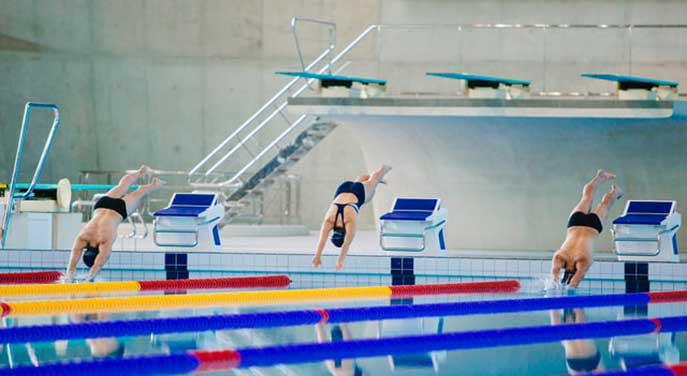 I didn’t get much work done during the Olympics. Once I decided to catch just a glimpse of what was happening, I got caught up watching the rowing, diving, volleyball … you get the idea.
I didn’t get much work done during the Olympics. Once I decided to catch just a glimpse of what was happening, I got caught up watching the rowing, diving, volleyball … you get the idea.
With so many fabulous demonstrations of grit and determination, I felt inspired to get out and work out (of course that only lasts a few minutes before a deck chair and a cold drink call my name).
To train the body to the limits of its capabilities without simultaneously training the mind is to invite, at best, mediocrity. Sports psychologists agree that, for athletes, 80 per cent of a performance occurs in the mind. Mental rehearsal, also termed visualization, produces the confidence necessary to achieve top performances. What your mind can conceive is what you can achieve.
Our minds have the awesome ability to reduce our heart rates and minimize physical fatigue, leaving us with more endurance and motivation than we might have believed possible. Olympic athletes have learned to harness this power, enabling them to achieve more consistent outcomes. Without the benefit of a calm mental state, even the best athletes in the world will falter under pressure.
 Maybe you don’t compete like this, but we all face pressure moments. Times when we feel like our very careers depend on our ability to focus, remain calm and overcome challenges.
Maybe you don’t compete like this, but we all face pressure moments. Times when we feel like our very careers depend on our ability to focus, remain calm and overcome challenges.
The biggest challenge we face?
Fear!
It comes in a few predictable formats:
- Fear of failure
- Fear of humiliation or embarrassment (fear of judgment)
- Fear of losing power
- Fear of rejection
Usually, one fear is stronger than others. This is the one that influences your behaviour most often. To overcome this fear and perform well, you must learn to calm your mind and work through the moment.
When an athlete is in the flow, every movement feels right. The critical and doubting mind can be bypassed to allow the athlete to embrace their skills and talents.
The same is true in our everyday lives. If you are constantly worrying about how you will be perceived, your natural ability gets compromised. It’s like being too tense on the diving board.
Through the use of hypnosis (guided imagery), one can practise new skills and embrace the opportunity to make necessary changes away from the highly competitive arena. Using these techniques, it’s possible to reduce stress levels and increase recovery times easily and effortlessly. We can fine-tune our concentration just as we would fine-tune our automobile to get it to running at peak performance.
We are learning, at an inner-mind level, to adjust our attention to our desired objective. As we gear up our energy level, we learn to shift ourselves into overdrive when the pressure rises; shifting back down to cruising speed once the moment has passed.
Mentally rehearsing at an inner-mind level frees us to create our best performances.
Learning to harness your thoughts through guided imagery and mental focus is not just for athletes. Each of these skills and techniques can be incorporated and used to create powerful results in other areas of your life – testing, interviewing, public speaking, relationship building and so much more.
The athletes at Rio 2016 once again showed us how important mental focus is to their performances. They provided a great reminder of how successful outcomes are stimulated by great focus.
So if your attitude is in need of a bit of adjustment, consider first what it is you are focusing on.
Faith Wood is a novelist and professional speaker who focuses on helping groups and individuals navigate conflict, shift perceptions and improve communications. For interview requests, click here.
The views, opinions and positions expressed by columnists and contributors are the authors’ alone. They do not inherently or expressly reflect the views, opinions and/or positions of our publication.
© Troy Media
Troy Media is an editorial content provider to media outlets and its own hosted community news outlets across Canada.

